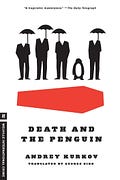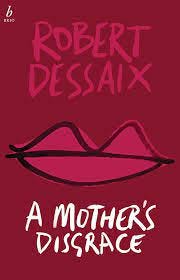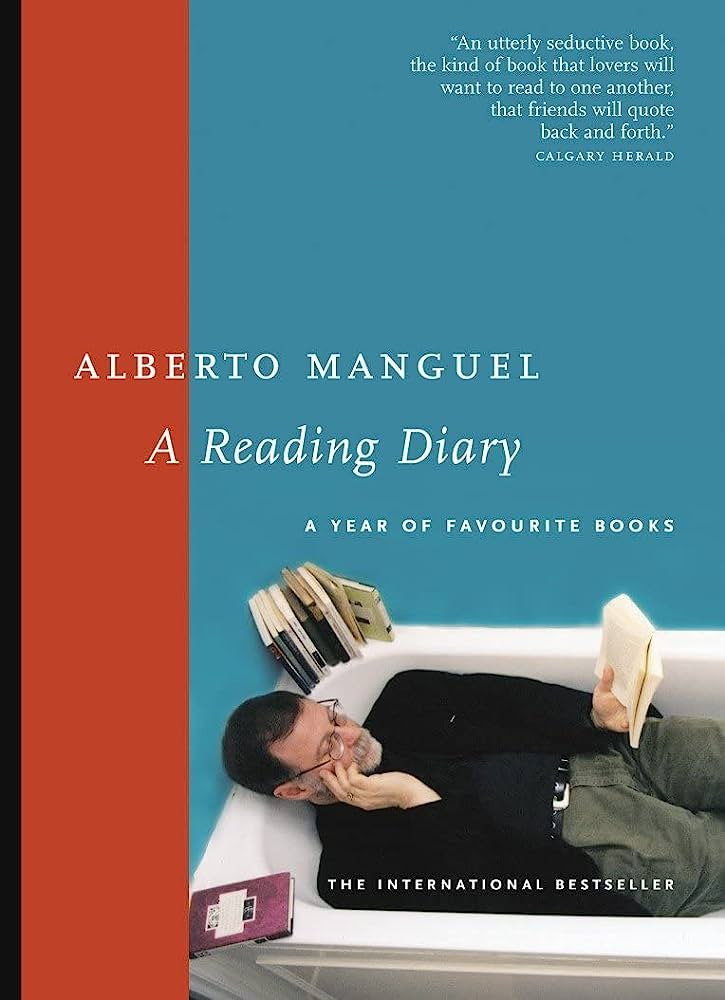Let me start this one light-hearted.
#40 in 2023
Ahh yes. Now I see. Oh so clear, the why. Why my bookish friend Anita recommended Checkout 19. It’s about a woman drowning in books, enthralled by them, intoxicated with words, so many words, sometimes the torrent of words in clever combinations was so overwhelming that I felt like lying down in a darkened room with a cold compress over my eyes.
That’s the impact of Checkout Nr. 19 by Claire-Louise Bennett. Summaries of this book don’t do it justice. It’s not about a girl working a cash register, although it is. It’s not a Bildungsroman, although it is. Maybe it’s about all the books you ever read about depression. It’s definitely very Irish, though it’s set in Yorkshire. Only an Irish writer would be such a glutton for words and know so many of them. Okay, maybe Vladimir Nabokov would know more but he wouldn’t have so much fun with them.
…we read in order to come to life. We were supremely adept at detecting metaphors, signs, analogies, portents — in books, and in our immediate realities.
one is relentlessly overwhelmed and understimulated at the same time.
hirngespinst
embrocated fingers
débrouillarde women
scuff-blackened
the slanting fungi
superfluous hands and static hair
Bennett’s book was on hold for so long at the library I finally had to get it on Kindle. Readers out there love her. I would happily read more Bennett if only because it pays to increase your word power. I hope that doesn’t count as faint praise. Even Knausgaard adores her. Thanks, Anita.
A NEW YORK TIMES 10 BEST BOOKS OF THE YEAR
NAMED A BEST BOOK OF THE YEAR BY THE NEW YORKER AND VOGUE
#41 in 2023
Lately I’ve been hanging out with a lot of Australians; I spent a couple of weeks in that hot continent to prep for a show in Melbourne in 2024. As a result, I’ve begun to notice their absence. In fact, you have to pity the Australian writer: more than once I’ve tried to summon them from the Toronto Public Library and the author is not in their collection, Doesn’t our colonial confraternity still exist?
I say this because I wonder why I haven’ t heard of Robert Dessaix before; why haven’t we all heard of him? His writing is so lithe and witty and chummy and queer. He’s the guy you get friendly with over extravagantly named cocktails, the kind who knows how to lavish a compliment. “I love your bangs. Let’s have another Checkout 19 on the Rocks.” Also he opens his memoir A Mother’s Disgrace (1994) with a Killer First Sentence:
One warm April evening in 1984, in a pleasant suburb of Cairo called Zamalek, three exquisite young men tried to kill me.
I fell upon Dessaix because I’m working on a book about surveillance in the USSR, and Sheila Fitzpatrick, whom I wrote about a few months ago, mentioned that Dessaix had studied in Moscow in the 1960s. Yes, Dessaix could fill a Kremlin dossier with his stories about the compulsion to study in the USSR despite all the attendant vagaries, including the regular attempts by the KGB to sexually blackmail foreign students. Also he smuggled forbidden literature into the Soviet Union, so he is my kind of guy.
However, the real story of the book, and the source of its title, is Dessaix’s encounter with his biological mother, a story that is very far from tearjerking, and instead becomes a meditation on the nature of coincidence.
This book, too, cannot be borrowed from a Toronto library. Yet Dessaix is, apparently, one of Australia’s most-loved writers.
#42 in 2023
Ukrainian writers are having a moment, and Andrey Kurkov is one of them. Amazon was selling Death and the Penguin at a song, so I grabbed it. It’s the tale of a hapless writer called Viktors who lives with a pet penguin and finally begins to make money when he’s hired to write obituaries before his subjects die. You might guess what happens next. The writer is pulled in deeper and deeper into a nest of lowlives, starting in his own town, Kyiv, and spreading all over Ukraine. His pet penguin is of course a highly unlikely plot point, just like all the female characters — a child who never asks for her parents, and a 17 year old babysitter who immediately sleeps with the forty-year old narrator and moves on to cooking for him and cleaning the house. Predictably, that’s where I stopped liking the book .
And just as submissively, she gave herself to him, saying nothing, uttering no sound. Still he had the urge to hurt, make her cry out and stop him, but soon wearied after achieving none of these things.
People were very excited by a more recent book by Kurkov, Grey Bees, which I haven't read, and he knows a lot about secret service men and a corrupt society. For that reason, if you can stomach the sexism and are in love with penguins, this mystery might be worth a down and dirty read under that sunbrella of yours. Also, let’s support Ukrainian writers, since all they have to do is go out for a pizza and a Russian missile will pick them off, which is what happened to the writer and human rights activist Victoria Amelina. I grieve for her and all the artists the Russians are so effectively obliterating.
#43 in 2023
Sometimes it feels like books come flocking together, that they, like penguins toddling over ice, communicate mutely with each other, and roll towards with you with a hidden intent. I say that because Alberto Manguel’s A Reading Diary (recommended by Māra, paldies!) not only was Checkout 19’s best friend but also seemed to be tasked with guilting me. Manguel is Argentinian and lived in many countries, including Toronto, where he was a mainstay of the literary scene. He wrote this diary during his first year of moving away to France, when he turned to his favourite books as a springboard for journaling. The book contains the thing someone bookish loves the most: lists of recommended titles that you can throw into your Book Lotto.
There is a certain magical arbitrariness to list-making, as if sense were to be created by association alone.
I would sit on a swing in the fragrant backyard of the Ventspils’ Writers’ House, under the canopy of gigantic lilac trees, peonies swaying, the always dusty white cat Watson sprawled in the shade, and take my Manguel in small sips, like a liqueur, until, bladāc!*, my serenity was shattered by a whole chapter on The Posthumous Memoirs of Bras Cubas. Manguel owns an entire five editions of this novel. I had attempted to read this Brazilian classic only the week before, and had set it aside as just too jocular for my taste. I went back to the book and read a few more pages. I still couldn’t get into it. Really, Alberto, you had to get on my case?
*Latvian version of ‘blam!’
#44 in 2023
It’s a little uncanny when one randomly selected book colludes with another, and this strange feeling pursued me all the way to my next read, since Jacques Derrida is coming up on my list and in the novel Glyph the prolific Percival Everett takes the complete piss out of Derrida, Lacan, and, especially, Roland Barthes. The premise of Glyph is that a supergenius baby is born with the mind of a poststructuralist professor, baffling and terrifying his parents and enticing mad scientists to his side (and Roland Barthes). Everett would like me to note that this is a Black baby, in case your biased mind imagined a white one. If you have ever been subjected to literary theory, as Everett clearly has, this book is the most elegant revenge, an uproariously funny read which strays far from Everett’s previous landscapes, though still involving kidnapping, racism, and Pentagon conspiracies.
Sometimes Everett’s pastiches of theory were too much for me, and I skipped them to get to the good bits. I’m sure he wouldn’t give a damn.
All I can do is give my text a helmet and condoms and send it out into the world.
I’m back in Toronto from a month spent in Latvia and here’ s one thing I notice right away: the Ukrainian flag isn’t flying everywhere, doesn’t show up when I call for an Uber or sit next to the tip jar at the cafe. As I left Riga, the Latvian government was issuing messages to tell people not to worry, if the Russians blow up the Zaporzizha nuclear plant, the fallout is unlikely to reach them. Yet alongside these persistent threats, life went gloriously on, the bars were hopping, and fourteen thousand people sang the Ukrainian national anthem at the Latvian song and dance festival.
I’m haunted by the death-by-Russian-missile-attack-on-civilians of the aforementioned Amelina, a fellow writer, mother of a twelve-year old. She had a lot to say about literature and its ability to liberate and subjugate. Note her article on "Cancel Culture vs. Execute Culture”. I’ve lost my funnybone, poet Ivars Šteinbergs wrote a year ago, in a screed against Putin. Sometimes I lose it, too. But I’m determined to keep finding it again. Because the funny is what keeps us going.
I was too distracted to stick to: Raymond Radiguet, The Devil in the Flesh; Kingsley Amis, The Anti-Death League; Boris Fishman, Savage Feast; Machado de Assis, The Posthumous Memoirs of Brás Cubas (sorry, Alberto)
**
Currently reading: Maria Tumarkin, Traumascapes
Still to read:
Oldest Title on the List: Robert Musil, The Confusions of Young Törless, 1906
The Random List:
Tove Jansson, The True Deceiver, 2009
Jacques Derrida, Writing and Difference, 1981 (doubt I will get past the first page)
Antoine Wilson, Mouth to Mouth, 2022
Wallace Stevens, Selected Poems, 2011
A big welcome to all my new subscribers. If you don’t know what these lists are all about, circle back to my very first posts. Or if that’s too tiresome, all you need to know is that I collect the titles of any book anyone mentions that I haven’t read, with a few caveats: a. no silly titles (eg My Little Pony) b. no pressure ie I can stop reading the book instantly if I don’t feel like it, c. books have to come from the library unless I can't get them there. Every month I choose ten titles from these ever growing lists by a randomized system, and I’m thrilled when bookish folks like you join me in my bibliophilia.







